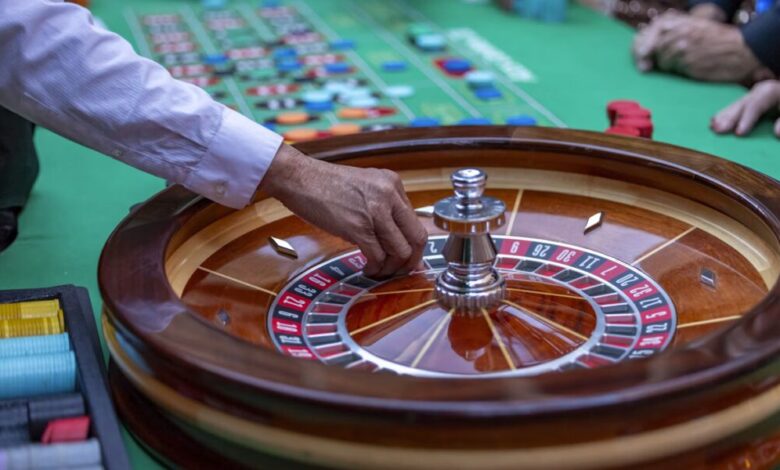Are cultural attitudes toward gambling shifting with the rise of online play?

Gambling has an image. A lot of people associate gambling games with things like glamorous trips to destinations such as Las Vegas and Monte Carlo. Gambling also may have felt like a rare event or a luxury pastime in days gone by. Different parts of the world have become renowned for their love of certain games.
Fast forward to today and things look very different. Gambling has grown into a mainstream activity and has become more a part of everyday life through apps and websites. This change has sparked a big question ŌĆö┬Āare cultural attitudes shifting too? What are the impacts of cultural changes?
Gambling often took place behind closed doors in the past. People travelled to casinos or special venues, making the act feel exclusive. Smartphones and digital platforms have opened the doors. Slots and other games are now just a tap away.┬Ā
This easy access has altered how people see the activity. Much of it is about the game selection. The days of there just being a few mechanical options are gone, and the slots themselves have become more in-depth. Some people enjoy free slot games where it is not about the money at all.
In this modern industry, are attitudes continuing to change?
A matter of perception
Public perception is fluid. When gambling moved online, many communities stopped treating it as something reserved for high rollers. Online platforms have adopted colorful graphics and are typically updated regularly. They share space with video games and social apps, which has resulted in the line between gaming and gambling becoming blurred for some people.┬Ā
The hobby can be something that divides opinion, and different parts of the world definitely have their own takes.
Generational differences
Previous generations often hold on to the belief that gambling is something risky or even taboo. TodayŌĆÖs adults have been raised on digital entertainment and may view it as another form of interactive fun. Slot streams on Twitch and clips on TikTok have turned the experience into content.┬Ā
Everybody has their own viewpoint, so it isnŌĆÖt as simple as boiling things down to the beliefs of generations gone by, although your generation can play a part.
The influence of community
Another shift comes from how people talk about gambling. In the past, it was often kept private. Winnings and losses remained personal business. Online play has changed that. Forums and chat allow players to share stories instantly. Screenshots and clips of play spread quickly, with highlights being clipped and reposted.┬Ā
The things people watch on streaming platforms can sometimes be a surprise. Some older games have actually proved to be very popular in recent years, so it isnŌĆÖt all about the newcomers.
This creates a sense of shared culture. It is similar to the way fan bases work around certain games. It also makes gambling feel more social.┬Ā
The role of branding
Cultural attitudes are also being shaped by how the industry brands itself. Casinos once relied on glitz and glamour, but online platforms lean on different aesthetics. Some have futuristic designs, while many adopt familiar pop culture themes. Each online platform is trying to stand out, but they also make things more relatable in some cultures. This flexibility gives gambling a different feel, and it doesnŌĆÖt feel as formal as it once did.
Normalization through presence
One of the biggest cultural changes is sheer presence. Online gambling ads and influencer mentions mean the activity shows up everywhere.┬Ā
People see it during sports broadcasts and on streaming platforms. The more visible something becomes, the more normal it is for a lot of people. Gambling is not a hidden niche ŌĆö itŌĆÖs part of the cultural landscape. A lot of locations are embracing gambling in ways that they havenŌĆÖt before.┬Ā
Shifting conversations
With this visibility comes new conversations. Communities debate gambling in ways that didnŌĆÖt happen in the past. Some talk about the entertainment value or how these games compare to video games. Others highlight different elements of the industry. The discussion itself shows a shift. Instead of being silent or ignored, gambling is openly part of cultural dialogue, which reflects changing attitudes too.
There are also examples of the casino industry changing the feel of communities. The industry can impact careers too. The economy comes into the conversation for both online and in-person casinos.
For many, gambling has become closely linked to entertainment rather than to profit. Online play encourages this with bright themes and interactive mechanics. People talk about their favorite slot designs the same way they talk about films or music. Awards havenŌĆÖt quite reached the status of the VMAs yet, but there are more people talking about the games themselves. This way of thinking influences how communities view gambling. The focus is largely on the actual games now.┬Ā
The global factor
Online platforms cross borders easily, and that global reach affects attitudes as well. Players from different cultures share the same digital spaces. They spread trends between one another. A slot popular in one region can spread quickly to another. This blending creates a more global culture of gambling, smoothing out older regional stereotypes. What once felt local now feels international.
This has happened in many different forms of gaming, so slots and casino games arenŌĆÖt alone here.┬Ā
Cultural attitudes rarely stay still. With online play continuing to grow, perceptions will keep shifting. Gambling may become fully absorbed into mainstream entertainment. New changes might spark fresh debates, but the cultural image of gambling is no longer frozen in time.



